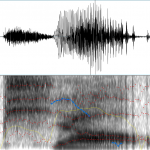Articles in the ‘Speaking’ category Page 9
-
Why you should learn Chinese in Chinese
It’s helpful to use your native language to learn Chinese, but one of the first things you should do is to convert anything you use often in the learning process into Chinese. This includes common classroom expressions or other phrases used when learning. Advanced students will find challenges in Chinese-only learning materials and dictionaries.
Read → -
Will a Chinese-only rule improve your learning?
Is a Chinese-only rule good for learning? Most people agree that immersion is a good thing, but that’s not the same as saying that using no English is good
Read → -
Focus on initials and finals, not Pinyin spelling
Instead of worrying too much about Pinyin spelling and what sounds each letter represents, students of Mandarin should zoom out a bit and focus on initials and finals as whole units. There are only around 60 of them and focusing on them will pay off handsomely.
Read → -
How knowing your best performance in Chinese can help you improve
When learning Chinese, it’s important to know how good your best performance is, because this determines the way you study. If your best performance is good enough, you mostly need high-volume practice, more of the same will get you there. But if your best performance isn’t good enough, you need to change tactics and go for high-quality practice instead.
Read → -
Learning how to ask for and receive directions in Chinese
Asking for and receiving directions in Chinese might look very easy, it’s usually in the first part of a textbook series after all, but most students go through that chapter without actually learning the content. In this article, I discuss how to really learn this skill.
Read → -
Improve your pronunciation with the Hacking Chinese pronunciation check
I’ve found that pronunciation is one of the most neglected areas in Chinese language teaching. Teachers don’t have the time or don’t know how to teach it properly. This means that students are left with bad pronunciation, often without knowing it. The goal with this course, which is now open for limited testing, tries to address this.
Read → -
Love and language: Challenges and opportunities in learning Chinese with a partner
Some say that dating a native speaker is the ultimate shortcut to fluency. “You’ll learn effortlessly with a teacher always by your side!” But is learning Chinese with a partner really the silver bullet it’s often made out to be?
Read → -
How to find out how good your Chinese pronunciation really is
Evaluating pronunciation needn’t be hard, but many methods commonly used by teachers are deeply flawed, resulting in inaccurate error analysis. If we want to improve, we need to be clear about what we need to improve first. This article looks at some problems with commonly used methods to evaluate pronunciation and suggests some alternatives.
Read → -
How to Approach Chinese Grammar
In this article John Pasden discusses how to approach Chinese grammar as a foreigner, starting by debunking a few myths and then going on to how to actually learn grammar. Chinese is a language where you can very far with just a few basic concepts and patterns, so make the most of what you learn and try to use it immediately. Then extend your knowledge gradually and return to old patterns for a more detailed look later when you actually need to. Grammar learning should be driven by an actual need for better ways of expressing yourself or understanding what people say to you!
Read → -
Why good feedback matters and how to get it
Teachers give feedback in many different ways, some terribly bad, others very good. The bad ones let you struggle for hours just to correct your essay, not necessarily learning much on the way. The good ones not only allow you to correct your essay, you also feel that you’re learning a lot and won’t make the same mistakes again. This article sets down some guidelines for how to give good feedback, useful for both students and teachers.
Read →








